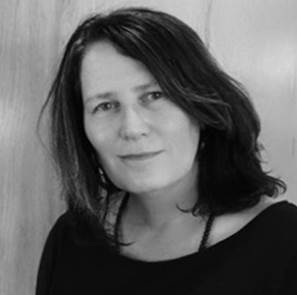
Taking a path of “ownership” to success
05/19/2016 10:54AM | 7382 viewsHispanics and Latinos who mindfully tap one or more of the six elements of an “immigrant mindset” can attract greater opportunities for success. By nature, immigrants see opportunity everywhere; more easily adapt to changing conditions; pursue their passions to uncover endless possibilities; do their jobs as if they owned the business; form strong bonds to treat colleagues and friends as family; and willingly share that success with others to keep the prosperity cycle going. Born Leaders tells their stories.
Gloria Reyes’s immigrant mother worked in a factory after arriving in Los Angeles from Mexico in the 1960s. Her greatest message to her children: Do all you can to get good jobs.
“I do not want you working in a factory,” she emphasized.
Reyes heeded her mom’s advice by attending college and pursuing her passion for numbers. Today she serves as the Senior Business Director for City of Hope’s Academic Medical Finance Department. While her title is quite a mouthful, Reyes’s role at the world-renowned cancer research and treatment center is an important one that doctors and scientists within the Clinical Departments rely on daily.
Reyes manages a department overseeing more than 800 accounts that support specific research studies. She also supervises compliance of related grants, which provide funds for scientific study, but also require that institutions adhere to many rules and regulations in related spending.
“We’re here for the doctors,” says Reyes. “They need to know how much money they have and can spend. They also need to know that everything is charged to the correct accounts.”
Adapting to new surroundings
Reyes migrated to Los Angeles from Chihuahua, Mexico, at age 11 with her mother and brothers. The $32 they saved allowed the young family to travel by bus to El Paso, and then Los Angeles. There, they reunited with her father, who had relocated and obtained a green card 10 years earlier to earn money for his impoverished family. Reyes felt it difficult to adapt, at first. But her brother suffered from polio, and the need for better treatment hastened their migration north.
“I begged my mom to go back,” she says. “The kids here treated us awfully. We weren’t allowed to speak Spanish. People were embarrassed to say they were Mexican,” she recalls. Eventually, Reyes adjusted to, and even embraced her new situation. She began excelling in school, academics, extracurricular activities, and sports.
Eventually she married, had children, and snagged a comfortable county courthouse job while attending college at night. It was an ambitious schedule, but Reyes wanted to ensure her mother’s greatest fear for her children never came true. She also possessed a strong sense of responsibility.
To her superiors, Reyes soon stood out as a can-do person who could take charge, and “own” the results. As a supervisor, she was asked to reorganize and “clean up” the court’s traffic division, where inefficient processes remained the norm, she says.
“We’d open the traffic window at 8:30 a.m. At 8:50, the roach coach food truck would arrive and everyone would leave and go to the truck,” Reyes laughs. Another worker had spent the previous 20 years simply embossing papers with a rubber stamp and nothing else. Needless to say, Reyes notes, “I streamlined a lot of processes.” At first, people were upset with the changes, but some grew to accept that the department was much improved with Reyes’s organizational prowess, and willingness to take ownership. She then served as a judge’s court clerk.
Eventually, conditions changed on her job, and Reyes became demoralized by some things she experienced, such as the inability to document and or terminate county workers who disobeyed workplace rules and lowered workplace morale. She began seeking new opportunities, and eventually interviewed for a job at the University of Southern California (USC).
“By the end of the interview, I had the job,” she says. “People at the courthouse said I was crazy for leaving. I had seven years in, and so they thought I was giving away my pension.”
“But I think you really need to be true to yourself. You have to be willing to take chances.”
Taking a leap of faith
In her new role at USC, Reyes initially served as an administrative coordinator for USC Cancer Center’s 1-800-4-Cancer hotline, assisting the office and helping with 30 volunteers. When the program coordinator transferred six months later, Reyes was asked to help with program’s funding grant. Eventually, she helped oversee a complex National Institutes of Health grant that supported USC’s cancer hotline as one of 20 across the country that provided information on the latest clinical trials, news, and more to cancer patients.
“Within two years, I was managing the grant, for the program,” Reyes says.
Working for the University also allowed her to finish her bachelor’s degree in public policy at USC, and later complete a master’s in Health Administration nearly cost free.
By taking the leap, Reyes also discovered a career she was passionate about. She finally had a job that allowed her to use her love of math and numbers, managing the accounts and related grant. She eventually managed grants and accounts for research for USC’s Neuromuscular Center, before spending 13 year as Division Administrator of the University Medical Center’s Hematology Division
Though her job was business oriented, in travelling back and forth between USC Medical Center and Los Angeles County medical facilities, Reyes was happy to give back to the people who shared a story similar to her early life. They included low-income Spanish-speaking residents who often didn’t understand their doctors’ orders, or issues related to their treatments.
“I fell in love with the concept of helping people, especially the county patients,” she says. “And they were always so grateful for the littlest things,” says Reyes, who travels, collects Mexican folk art, and enjoys spending time with her husband and two grandchildren when she’s not at work. Her love of helping others even extended to organizing a successful art festival at USC several years ago featuring some of Mexico’s finest artists, which attracted more than 500 young students from Los Angeles Unified School district. It was also part of a fundraising effort for HIV and diabetes research.
Four years ago, her career path brought her to City of Hope. Reyes’s team oversees seven of the 11 clinical departments, including surgery and medical oncology.
Challenges include managing more than 800 accounts that fund a plethora of studies focused on cancer research, diabetes and other diseases. Again, Reyes’s organizational skills have been called on to help streamline and improve processes. To achieve success, she taps leadership skills developed over a well-seasoned career.
“A good leader,” she says. “Is someone who is accessible, who can make changes, and can get staff on board with those changes. You can’t just dictate to staff. I believe you have to teach people the reasons why things need to be done, rather just saying it needs to be done.”
In the end, Reyes’s victories are about working hard, playing well with others, going with what she knows – and, of course, taking ownership.
“The buck stops with me. I take responsibility for everything I do,” she says.






Post your Comment
Please login or sign up to comment
Comments